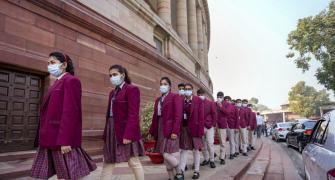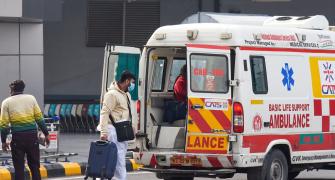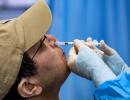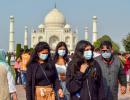The government is likely to make it mandatory for passengers arriving from China and five other places to have negative RT-PCR reports from next week, official sources said on Wednesday.

They also cautioned that the next 40 days will be crucial as India may see a COVID surge in January.
Even if there is a wave, deaths and hospitalisation will be very low, the health ministry sources said.
"Previously, it has been noticed that a new wave of COVID-19 hits India around 30-35 days after it hits East Asia.... This has been a trend," an official said.
The sources said filling up of 'air suvidha' forms and 72-hour prior RT-PCR testing may be made mandatory from next week for international passengers coming from China, Japan, South Korea, Hong Kong, Thailand and Singapore.
The sources said 39 international passengers were found positive for COVID-19 out of the 6,000 tested on arrival in the last two days.
Union Health Minister Mansukh Mandaviya will visit the airport in Delhi on Thursday to take stock of testing and screening facilities there, they said.
The proposed tightening of COVID guidelines and warning of a fresh surge come days after Mandaviya asked Congress leader Rahul Gandhi to consider suspending the Bharat Jodo Yatra if COVID-19 protocols could not be followed.
The yatra, currently on winter break, will resume on January 3.
Amid a spike in COVID-19 cases in some countries, including China and South Korea, the government has sounded an alert and asked states and Union territories to prepare for any eventuality.
Following the surge, the government made random coronavirus testing mandatory for two per cent of passengers arriving in each international flight from Saturday.
Prime Minister Narendra Modi and Health Minister Mandaviya have held meetings to assess the country's preparedness to deal with a fresh surge in cases.
Mock drills were held at health facilities across India on Tuesday to check operational readiness to deal with any spurt in COVID-19 infection, with Union Health Minister Mansukh Mandaviya saying the country has to remain alert and prepared as cases are rising in the world.
The latest spike in cases is being driven by Omicron sub-variant BF.7.
The official sources said the transmissibility of this BF.7 sub-variant is very high.
A person infected with the sub-variant can further infect 16 persons.









